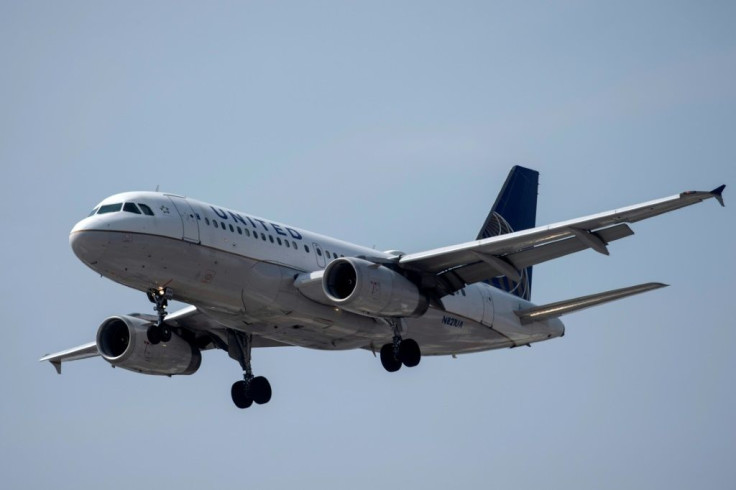US Airlines To Get Almost $60 Billion In Bailout, With Some Conditions Attached

KEY POINTS
- The package for airlines was evenly dividend between loans and grants
- Airlines will be required to forego dividends, stock buybacks for one year after loans are repaid
- The bill provides no climate protection clauses
The massive $2 trillion stimulus package bill that the U.S. House of Representatives is expected to pass on Friday includes a $58 billion bailout program for the nation’s airlines.
U.S. air carriers, beleaguered by collapsing demand, border closures, self-quarantines and travel restrictions, had been clamoring for financial relief from the federal government.
The funds available to airlines will comprise loans and grants.
Specifically, the bill provides $25 billion in loans and loan guarantees for passenger airlines, $4 billion for cargo air carriers, $25 billion in grants to pay workers through September, and a similar $4 billion for cargo air carriers.
The U.S. airline industry boasts some 750,000 workers.
In exchange for the bailout, airlines are barred from repurchasing shares or paying dividends to shareholders for at least one year after the loans have been repaid.
Airlines would also be prevented from laying off or furloughing workers through the end of September.
In addition, executive compensation for any airline that receives aid will be capped at 2019 levels (CEOs of the large US airlines earned between $10 million and $15 million in total compensation in 2018).
In exchange for the loam segment of the bill, the federal government may take an equity stake in the companies until such loans are repaid.
The Air Line Pilots Association, or ALPA, the largest pilots’ union, praised the package.
"From the outset, ALPA maintained that any economic relief bill must put workers first to keep airplanes flying and help move our economy," said Joe DePete, ALPA president. "ALPA pilots applaud the fact that the economic relief package contains provisions to limit furloughs, protect our contracts, and ensure that federal assistance is used to pay airline employees' salaries and benefits, not executive compensation or corporate stock buybacks.”
The Association of Flight Attendants, or AFA, which represents cabin crew, also applauded the deal.
"This is an unprecedented win for frontline aviation workers and a template all workers can build from," AFA president Sara Nelson. "The payroll grants we won in this bill will save hundreds of thousands of jobs and will keep working people connected to healthcare many will need during this pandemic."
She added: "This is not a corporate bailout; it's a rescue package for workers -- for flight attendants, gate agents, pilots, mechanics, caterers, airport maintenance and janitorial staff and everyone who keeps our aviation system moving.”
U.S. Transportation Secretary Elaine Chao was a strong proponent of the rescue package.
“Without grants, airlines may be forced to choose bankruptcy over federal loans, if loan conditions are too inflexible,” Chao warned in a memo.
However, climate activists are angered that the bailout features no stipulations for the airline industry to reduce carbon emissions.
Democratic House Speaker Nancy Pelosi had proposed a provision that airlines cut their emissions in half by 2050 – however, that item was excluded from the final version of the bill.
Annie Petsonk, international counsel for the Environmental Defense Fund, said airlines should have been mandated to cut emissions as a requirement to receiving financial aid.
“The provisions we were focused on simply would hold the airlines to what they already said they’re going to do,” Petsonk said. “People do not want to solve one crisis by making another crisis worse.”
Indeed, the auto industry bailout in 2008 had required stricter rules to reduce pollution.
However, other activists think any future bailout programs will likely include climate-friendly clauses.
Scott Segal, a lawyer and lobbyist with Bracewell LLC, which represents energy industry clients, said: “Was this a missed opportunity for climate? I think the answer to that is no. This stimulus package was primarily about getting money into the hands of individual households and workers and in some service sectors that were particularly hurt.”
Kevin Book, managing director of ClearView Energy Partners, a research firm based in Washington D.C., said: “Congress is going to be making more deals, and as long as there is a deal to be made, Democrats have made clear what they want.”
Will Horton criticized parts of the package in Forbes.
“The U.S. airline coalition was clever to threaten layoffs and remind it directly employs 750,000 people,” he wrote. “Another smart decision was what not to say: the U.S. airlines are amply funded for now and do not need to be at the front of government support.”
Horton cited that American Airlines (AAL), Delta Air Lines (DAL) and United Airlines (UAL) have at least six months of liquidity, while Southwest Airlines (LUV) has 10 months while Spirit Airlines (SAVE) and JetBlue Airways (JBLU) have liquidity that can last more than one year.
“But don’t let a good crisis go to waste” he quipped. “They now ask the government, not their shareholders, to pay salaries after extensive dividends and stock buybacks.”
Horton warned that after the Sept. 30 expiry on layoff prohibitions, airlines will likely play hardball with their employees as the industry gets leaner.
© Copyright IBTimes 2025. All rights reserved.





















